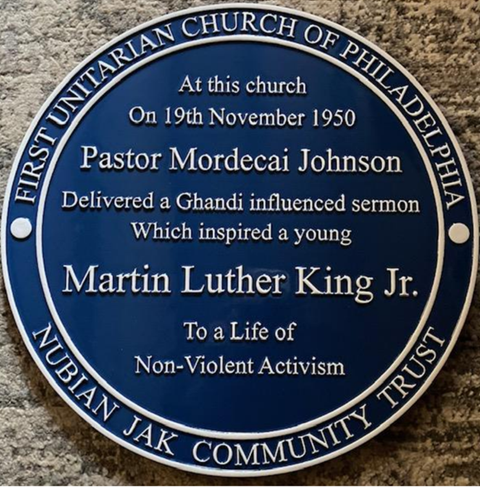

Martin Luther King Jr
Philadelphia, 1950, the great African American Reverend Mordecai Johnson gave a sermon on non-violent protest, which could not help but have an effect on all who heard it.
A few days later, four college students who were present, entered a Maple Shade Eatery in Camden, New Jersey and sat down to order some food. After waiting for a while and noticing they were being deliberately ignored, one of the students approached the counter to ask if they could be served. The person behind the counter instead asked the students to leave. When they refused, the person serving brandished a handgun to underscore his demand for them to go. One of the four students was a young Martin Luther King Jr.
Incensed by this act of discrimination and galvanised by the sermon he had heard and ideas growing from Gandhian non-violent strategy, MLK Jr decided he needed to do something. He and his friends left the eatery, returned to 753 Walnut Street, where he had been staying, and immediately planned an act of civil disobedience, a student sit-in at the Maple Leaf Eatery.
This was his first foray into civil rights activism. Within a few years he would become the face of the civil rights movement. His convictions, his sense of outrage and social justice, would lead him to become one of the most influential figures in history, amassing a global following and a host of prestigious awards, including the Nobel Peace Prize.
To commemorate the 71st anniversary of the Mordecai Johnson Sermon, Nubian Jak Community Trust, in partnership with the Amir and Aughtney Khan Foundation, Camden District Council and the NAACP installed two international plaques: one at 753 Walnut Street, in Camden, New Jersey, a dilapidated property, where he stayed, and the other, at the First Unitarian Church in Philadelphia at the exact time that he would have heard Mordecai Johnson's sermon on the 19th November 1950.
